Energy Control System: The Core Technology Leading to Efficient Energy Utilization
In the current era of ever-growing energy demand and increasing environmental pressure, the energy control system, as a key technology for achieving optimal energy management and efficient utilization, is playing an increasingly important role. This blog will deeply explore various key aspects of the power control system, including its definition, components, working principle, advantages, application fields, as well as the challenges it faces and future development directions.
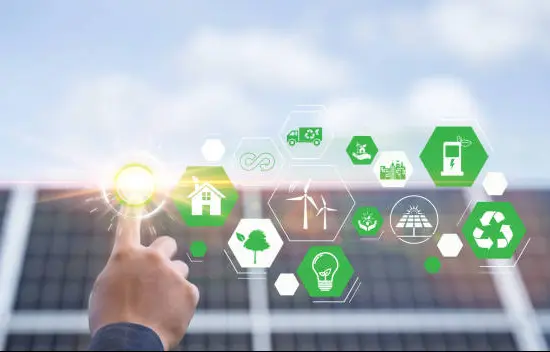
- Definition and Scope of the Energy Control System
The power control system is a comprehensive technical system aimed at precisely monitoring, analyzing, and regulating the generation, transmission, distribution, and usage of energy to maximize its utilization and minimize waste. It covers various energy forms such as electrical energy, thermal energy, mechanical energy, etc., and is applicable to a wide range of fields from industrial production to residential life.
2.Components of the PowerControl System
- Sensors and Monitoring Devices: These devices are responsible for real-time collection of energy-related data, including parameters such as energy flow, pressure, temperature, and power.
- Data Acquisition and Transmission System: Transmits the data collected by the sensors accurately to the central control unit, ensuring the timeliness and integrity of the data.
- Central Control Unit: This is the brain of the powercontrol system. It conducts in-depth analysis and processing of the collected data, and uses complex algorithms and models to formulate optimization strategies.
- Actuating Mechanism: Adjusts and controls energy equipment according to the instructions of the central control unit, such as adjusting the valve opening, changing the motor speed, etc.
3.Working Principle of the Power Control System
The working process of the power control system can be summarized in the following steps: First, sensors and monitoring devices continuously collect operational data of the energy system. These data are promptly transmitted to the central control unit through the data acquisition and transmission system. The central control unit utilizes advanced data analysis and processing technologies to deeply mine the data, identify inefficient links and potential problems in the energy system. Based on these analysis results, it uses preset algorithms and models to generate optimization control instructions. Finally, the actuating mechanism receives the control instructions and makes corresponding adjustments to the energy equipment, thereby achieving the optimized operation of the energy system.
For example, in an industrial manufacturing factory, the power control system can monitor the energy consumption of each production line in real time. When it is found that the energy consumption of a certain production line is too high during a specific period, the system will automatically adjust the operating parameters of the equipment on that production line, such as reducing the operating speed of the machines or adjusting the temperature of the heating equipment, to achieve the purpose of energy conservation.
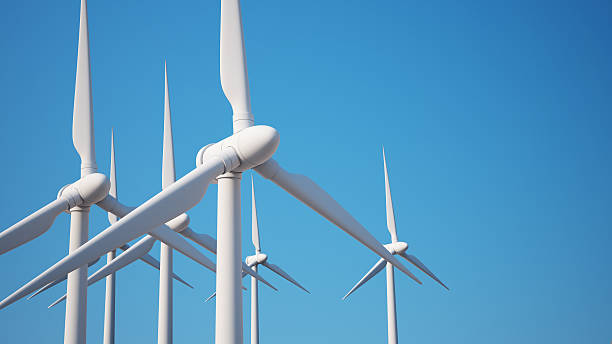
4.Advantages of the Energy Control System
- Significantly Improve Energy Efficiency: Through precise monitoring and intelligent regulation, unnecessary energy waste is reduced, and efficient energy utilization is achieved.For instance, in commercial buildings, the power control system can automatically adjust the operation of air conditioning and lighting systems based on the number and activities of indoor personnel, thereby significantly reducing energy consumption.
- Reduce Operating Costs: Optimize energy usage, reduce energy purchase volume, extend equipment lifespan, and lower maintenance costs.
- Enhance the Stability and Reliability of Energy Supply: Promptly detect and solve faults and abnormalities in the energy system to ensure the continuous and stable supply of energy.
- Support the Integration of Renewable Energy: Effectively manage the volatility and intermittency of renewable energy and promote its collaborative work with traditional energy.
- Provide Decision Support: Based on rich data and analysis results, provide a scientific basis for energy management decisions and assist in formulating long-term energy strategies.
5.Application Fields of the Energy Control System
- Industrial Production: Including manufacturing, chemical, steel, and other industries, achieving refined management of energy consumption during the production process, improving production efficiency and energy utilization rate.
- Building Sector: Large public buildings such as office buildings, shopping malls, and hospitals can achieve intelligent energy management through the powercontrol system, improving comfort while reducing energy consumption.
- Transportation: In electric vehicles and rail transit, the powercontrol system helps optimize battery usage and charging strategies to extend the driving range.
- Smart Grid: Participate in the dispatch and management of the power grid to improve its stability and adaptability.
6.Challenges Faced by the Energy Control System
- Data Quality and Accuracy: Factors such as sensor failures and data transmission interference may lead to inaccurate data, affecting the decision-making and control effects of the system.
- System Complexity and Integration Difficulty: It needs to seamlessly integrate with numerous different types of energy equipment and systems, which poses high requirements for technology and engineering implementation.
- High Initial Investment Cost: Including investments in hardware equipment procurement, software system development, and professional training.
- Rapid Technological Updates: It is necessary to continuously follow the latest technological developments and conduct system upgrades and optimizations to maintain its competitiveness and effectiveness.
- Personnel Skills and Awareness: Operators need to have a certain technical level and energy management awareness to fully exert the role of the powercontrol system.
7.Future Development Trends
- Deep Integration of Artificial Intelligence and Machine Learning: Further enhance the system’s prediction ability and adaptive control level to achieve more precise and efficient energy management.
- Strengthening of Big Data Analysis: Process and analyze massive energy data, mine more valuable information, and provide stronger support for decision-making.
- Closer Integration with the Internet of Things: Achieve wider device interconnection and data sharing to build a more intelligent and automated energy ecosystem.
- Development towards Distribution and Miniaturization: To adapt to the increasingly decentralized energy production and consumption patterns, such as energy management in distributed energy systems and smart homes.
- Emphasis on Security and Privacy Protection: As the importance of energy data continues to increase, ensuring data security and user privacy will become a key concern.
In conclusion, as the core technology of modern energy management, the power control system has huge potential and broad development prospects. Despite facing many challenges, through continuous technological innovation, policy support, and industry cooperation, it will make important contributions to achieving the sustainable development and efficient utilization of global energy.
Contact us
- Email:[email protected]
- Tel: +86 13651638099
- Address: 333 Fengcun Road, Fengxian District, Shanghai
Get A Quote Now!
Read more
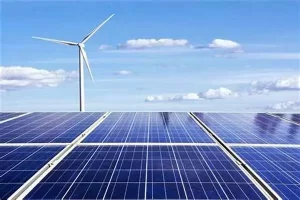
Unveiling Photovoltaic+Energy Storage: Four Major Application Scenarios Leading the Future of Energy
In this way, the energy landscape is evolving, and one of the most thrilling developments in renewables is the integration of photovoltaics energy storage.

From Theory to Practice: Four Methods for Estimating Photovoltaic Power Generation
Photovoltaic power generation has become an essential part of modern energy solutions, particularly in home solar systems and distributed power applications
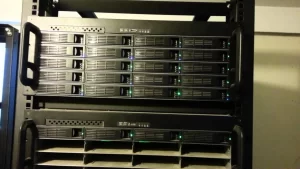
Rack-Mounted Lithium Iron Batteries: Creating Efficient and Reliable Energy Storage Solutions
When it comes to modern energy solutions, rack-mounted lithium iron batteries are taking center stage in a variety of industries. Whether you’re powering data centers, stabilizing energy for households, or keeping critical systems online at 5G base stations, these batteries have become the unsung heroes of our electrified world.
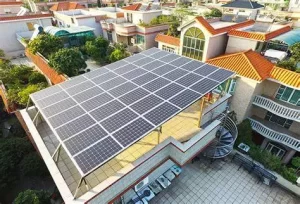
Late Night Energy Saving Tips: How to Maximize Electricity Savings During Off-Peak Hours
With rising energy costs, homeowners are increasingly exploring innovative ways to save on their electricity bills. One effective approach is utilizing off-peak hours—times when electricity rates are significantly lower due to reduced demand.
